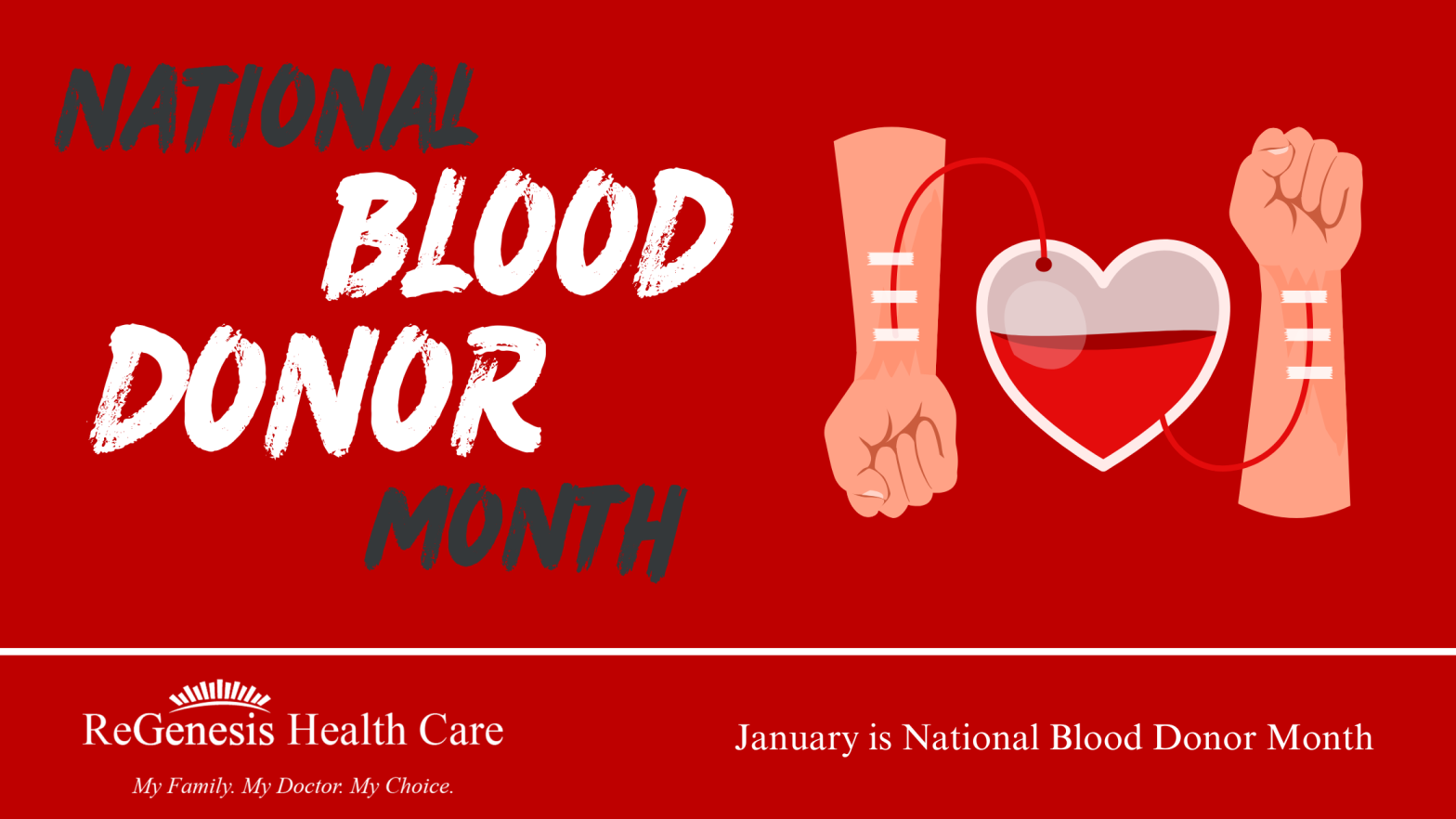As we welcome the New Year, National Blood Donor Month offers a timely reminder of the critical need for blood donations, encouraging us to start the year by making a life-saving impact through voluntary giving.
Donating
Why is it Important?
Blood donations play a critical role in saving lives, supporting patients with conditions such as cancer, trauma, and chronic illnesses, and helping healthcare systems maintain a steady blood supply. Donating blood during the winter months is especially important because donations typically decrease during this time of year due to holidays, travel, and illness.
In addition to the positive impact donating blood has for the healthcare community’s needs, it can also improve your personal health. Donating blood can help your body replenish its blood supply within a few weeks. It clears iron deposits from your body which reduces the risk of heart disease. Consequently, donating blood stimulates your immune system, enhancing its efficiency and ability to protect against infections and illnesses. Donating blood also improves blood flow to your skin, which can reduce acne and other skin problems.
Strangely enough, donating blood is also good for the environment. It helps the body detoxify by influencing the levels of chemical compounds found in many consumer and industrial products. Moreover, by relying on voluntary blood donations, healthcare systems can minimize the manufacturing and transportation costs associated with synthetic blood products. Many blood donation centers follow sustainable practices in their operations, such as recycling materials and using energy-efficient equipment. By helping ensure an efficient and sustainable blood supply, donors contribute to reducing the overall environmental footprint of healthcare.
Selling vs Donating
What does it mean to sell blood or plasma? Selling blood refers to the process of offering your blood for money or other compensation. The most common example of this is “donating” plasma at a private plasma center. These facilities offer to pay—on average, but it can depend on your area—$40 or more per visit when you donate.
While there is no moral or long-term health objection to selling one’s blood, the industry is designed to motivate people to donate more than is naturally healthy. For-profit centers where you get paid allow you to donate twice a week, or 104 times a year. This often leads people to common and persistent short-term health problems like severe fatigue, nausea, and passing out during or after donations. People who donate repeatedly for extended periods of time often describe feeling slowed down, restless, and a sense of uneasiness that they can’t shake.
In contrast, the Red Cross limits altruistic donations to once every 28 days, or 13 times a year. This allows your blood to regenerate, fully replenish, and heal your body between donations, avoiding symptoms that occur if you donate more often.
For an interesting and deeper look at this issue visit: Kathleen McLaughlin on her book ‘Blood Money’, about the global trade in blood plasma : NPR
The Bottom Line
Donating blood is so important and needed. However, you should carefully weigh the pros and cons when deciding between selling or donating. Donating blood voluntarily ensures the safety and ethical distribution of blood, as it is given freely and used to help those in need without financial incentive.
Whether you decide to sell or donate, we are so thankful to you for your willingness to contribute to the well-being of others. Your decision to share a life-saving resource plays a critical role in supporting those in need and helps ensure that medical systems have the blood supply required to save lives and improve health outcomes.



